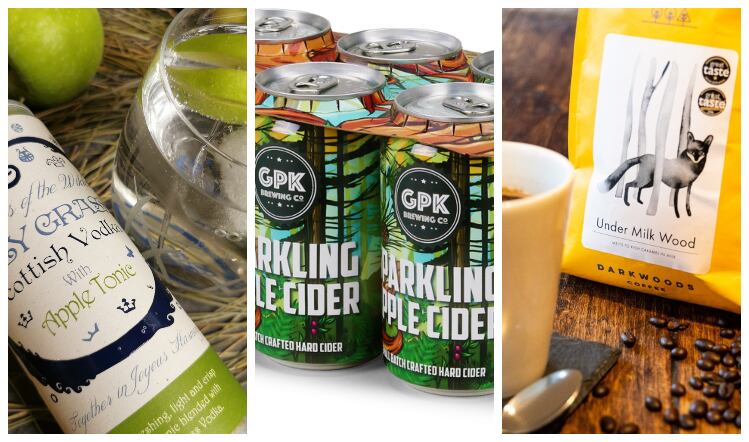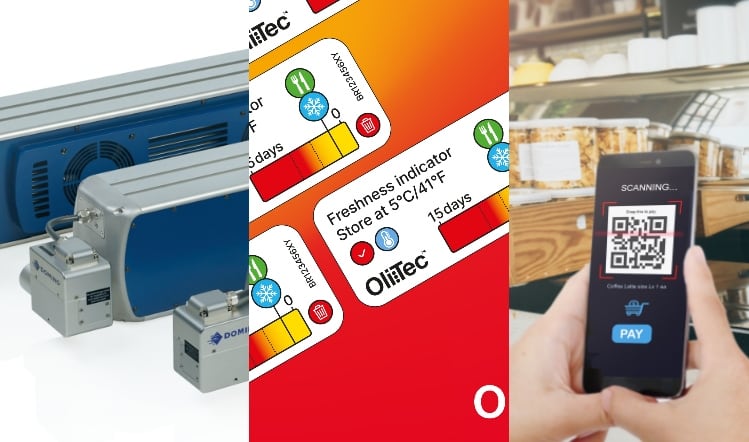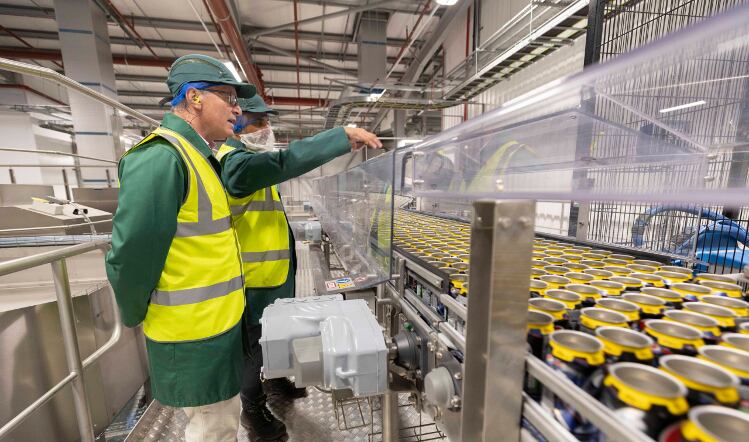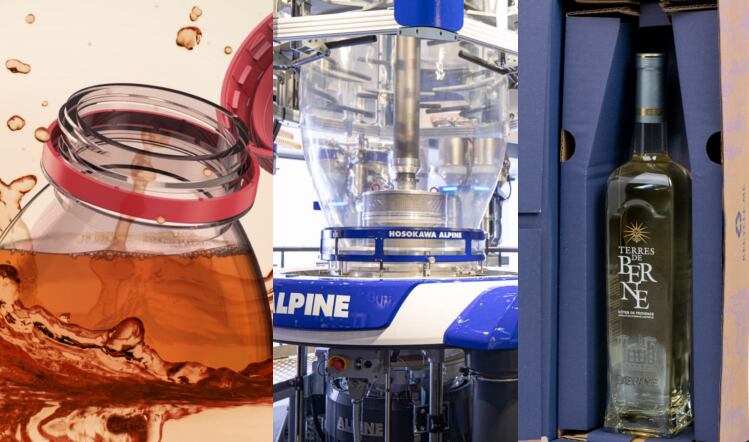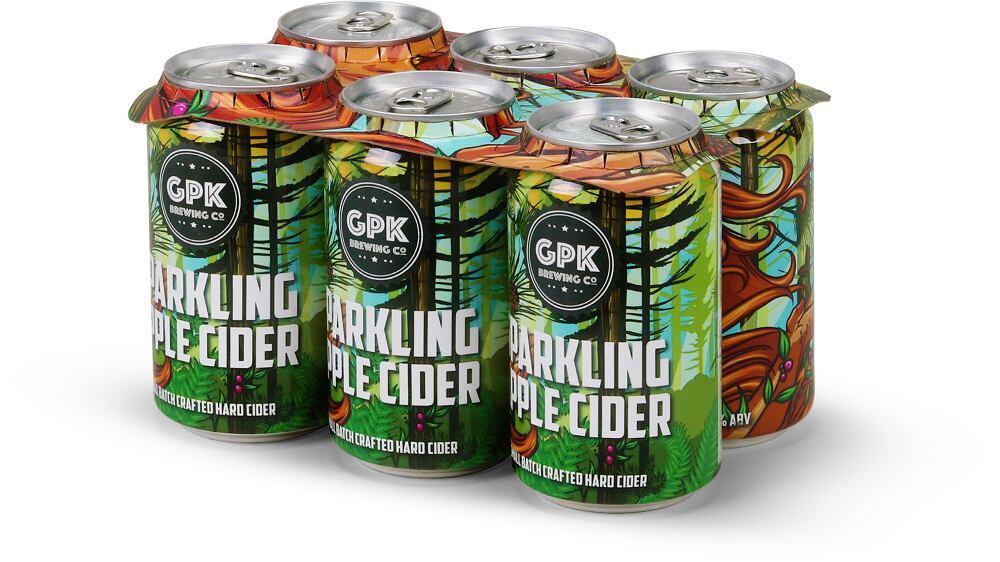
New modular packaging machinery offers two-for-one combo
Graphic Packaging International has launched a new beverage multipack machinery system able to apply two different clip-style packs with a single machine.
ClipCombo’s modular system allows producers to switch between two pack style in ‘just minutes rather than hours’ and can achieve top-line speeds of up to 400 packs per minute – depending on application and configuration.
The ability to deliver multiple pack styles with rapid changeover removes the need for several installs, freeing up space on the factory floor and reducing the number of operators required.
Doug Hicks, vice president of the packaging machinery division at Graphic Packaging, said: “Innovation is at the heart of everything we do at Graphic Packaging. As the speed of change moves ever faster, developing effective solutions that address our customers’ needs of today – and those of tomorrow – is critical to our combined success in reducing the reliance on plastic for a more sustainable future.”
ClipCombo has machine options that apply to either can or PET bottle multipacks. ClipCombo for cans combines KeelClip or GripClip with the minimal material EnviroClip, while for PET bottles, it combines Cap-It and EnviroClip.
Confusion over packaging tax curbs registrations
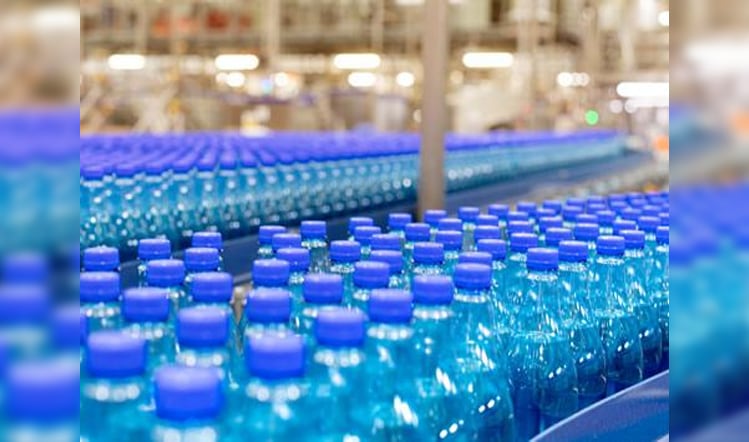
A widespread lack of understanding and accurate data on the Government’s Plastic Packaging Tax is why less than 5% of HMRC’s estimated number of registrations to pay the new tax have signed up, according to data services provider Ecoveritas.
Of the 20,000 businesses that could be affected by the tax, just 992 have registered to pay the new tax that came into force on 1 April 2022.
“Fewer than one in twenty liable businesses registered for the new plastic packaging tax in the first month,” said Andrew McCaffery, EPR Director at Ecoveritas.
“This considerable body blow also casts doubt over the £235m in revenue HMRC predicted it would collect from the new tax in its first year. More worryingly, it also paves the way for a raft of fines for non-payment for the industry.”
Failure to comply with the tax carries the risk of criminal damages, but HMRC are unlikely to impose hefty penalties for innocent non-compliance immediately, McCaffery claimed.
“Being unaware of a new tax will not stop HMRC from investigating your business and levying fines for any underpayments or failure to register and make returns in the longer term,” he added. “Companies that ignore the plastic packaging tax may be in for a nasty surprise.”
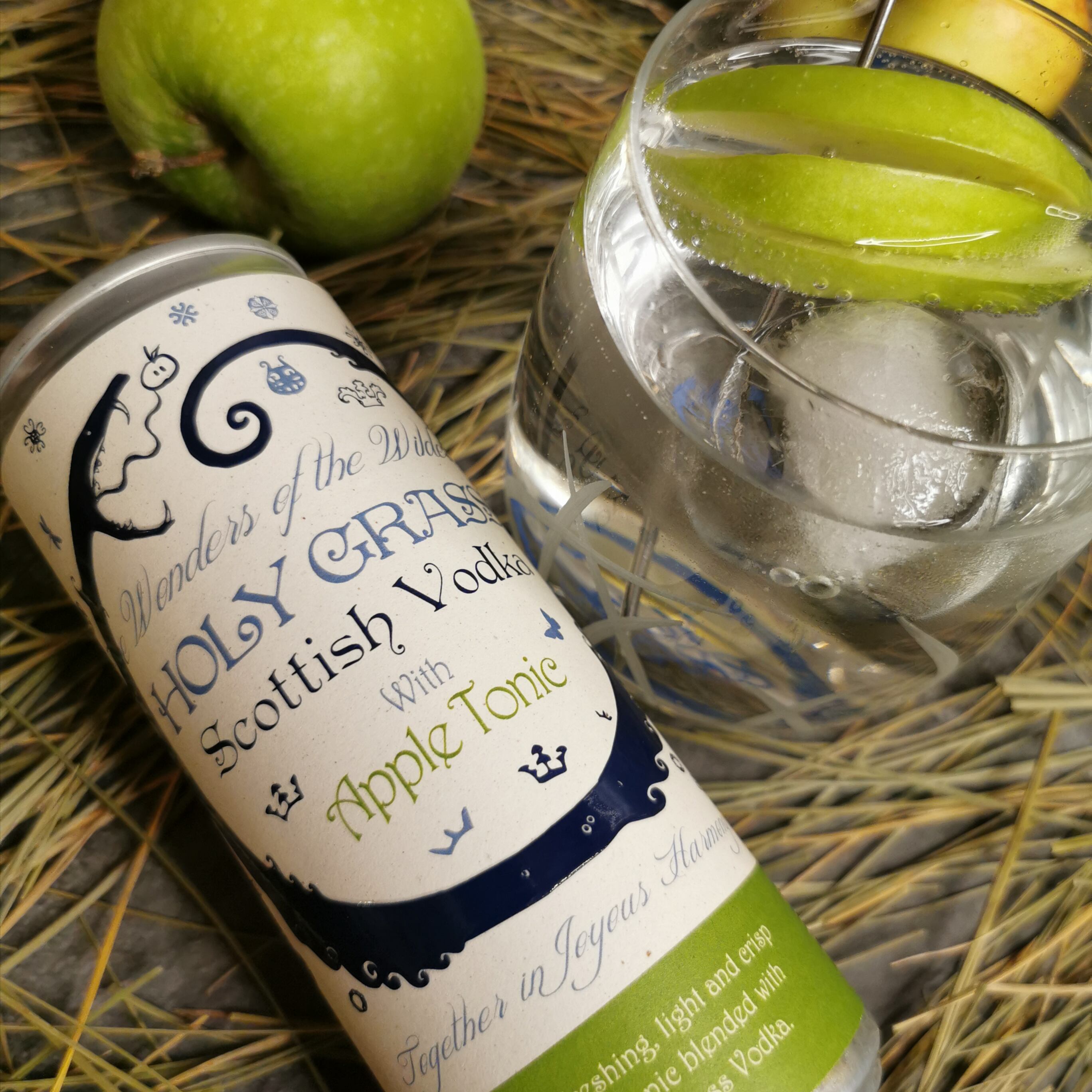
Apple waste used in label production
Drinks manufacturer Dunnet Bay Distillers has turned to apple waste for the construction of its new sustainable labels, produced by The Label Makers.
The Label Makers used Fasson Apple Touch FSC, an uncoated matt wood-free printing paper with a smooth surface and made from 5% apple waste from apple juice production, and 95% FSC certified pulp.
“With aluminium being one of the most environmentally efficient packaging materials, we chose this format as we wanted the label to be as sustainable as possible,” said Sarah Lyons, environment manager at Dunnet Bay Distillers.
“It was an easy choice to go for a paper wrap over other labelling options, allowing us to adhere closely to the company’s sustainability principles.”
The label was digitally printed in full colour, with matt varnish and a high-build tactile finish to highlight the design.
Dan Wilson, The Label Makers business development manager added: “As always when we work with companies like Dunnet Bay Distillers, who have a very strong sustainability stipulation throughout their operation, we do our utmost to match their requirements. Clearly in this case the tie-in between the waste apple pulp and contents of the can work particularly well.”
Coffee firm chooses compostable packaging
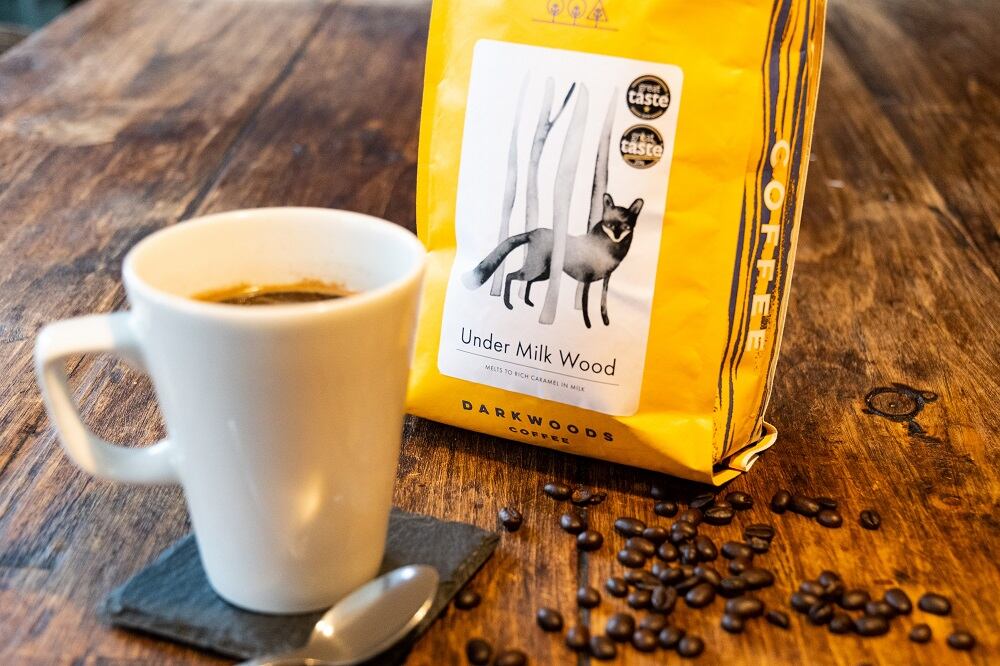
Specialty coffee roaster Dark Woods Coffee has chosen compostable packaging from Parkside for its range of hospitality and B2B supplied coffee beans.
The flexible packaging from Parkside is made with a home-compostable bag from its Park2Nature range and an industrially compostable valve.
Paul McKeown, speciality sales director at Parkside, said: “Our innovative compostable packaging was the final piece of the puzzle for Dark Woods. Park2Nature is a 100% compostable solution, that does not compromise on barrier performance or print quality.
“It delivers the performance Dark Woods needed, and it can do the same for any food or beverage product. For example, formats are available where gas flushing is required, making it also an ideal solution for other applications, such as fresh or cooked meat and fresh produce packaging.”
Dark Woods’ previous packaging solution was manufactured with a PET and PE laminate. Parkside’s Park2Nature solution provides the same oxygen barrier properties to keep the coffee fresh, while also offering an eco-friendly cradle-to-cradle life cycle. Park2Nature products are available in a range of formats for various applications, including freezing and vacuum pouching.
Mintec packaging insight
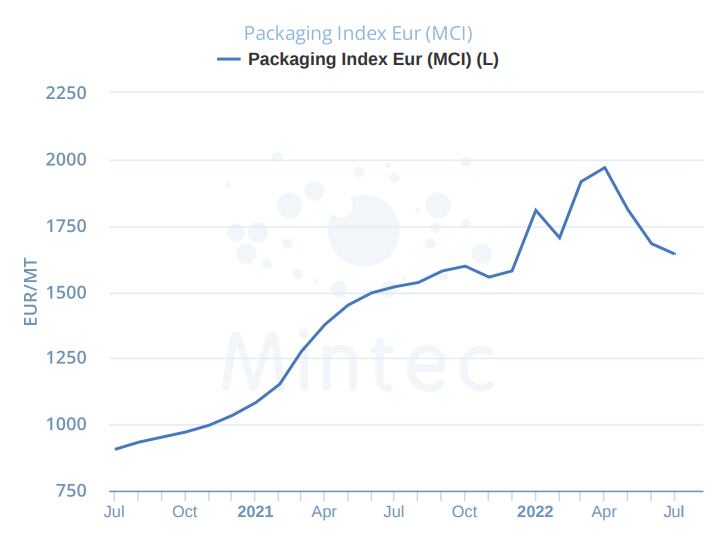
In July 2022, the Mintec Category Index (MCI) for EU packaging declined for the third consecutive month; down by 2.3% month-on-month (m-o-m) but up by 8.2% year-on-year (y-o-y) to EUR 1,643/MT. Despite cuts and sanctions on feedstock (crude oil and gas) from Russia (major EU supplier), the MCI fell during the month. The index was driven by a decline in plastics prices (except EU PET) due to weakened demand combined with substantially improved supply, as many producers built up inventories anticipating further price rises. However, the MCI for EU packaging remained higher y-o-y on the back of elevated energy costs and logistical disruptions.
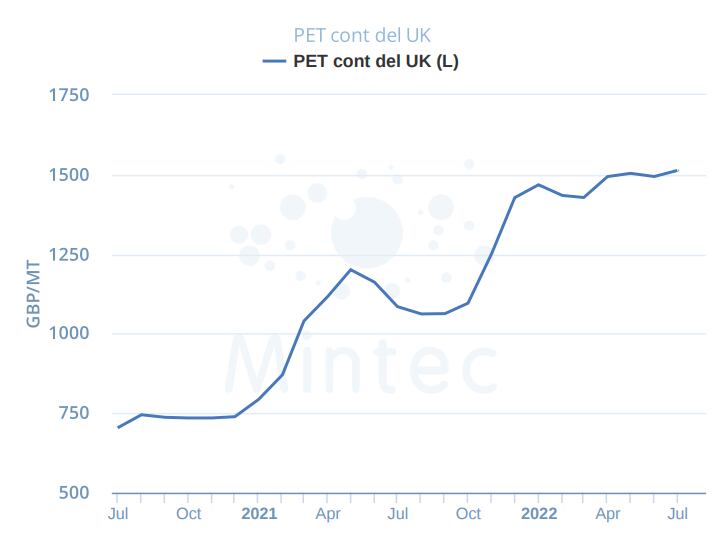
The UK monthly average price of polyethylene terephthalate (PET) increased by 1.3% m-o-m and by 39.4% y-o-y to GBP 1,513/MT in July. The increase in price was in line with price movements in the EU PET market, rising on higher demand because of its comparatively good recycling performance. Additionally, according to market sources, there has been an increase in demand for the recycled material (rPET) in various fields of applications, including those in which PET otherwise hardly plays a role.
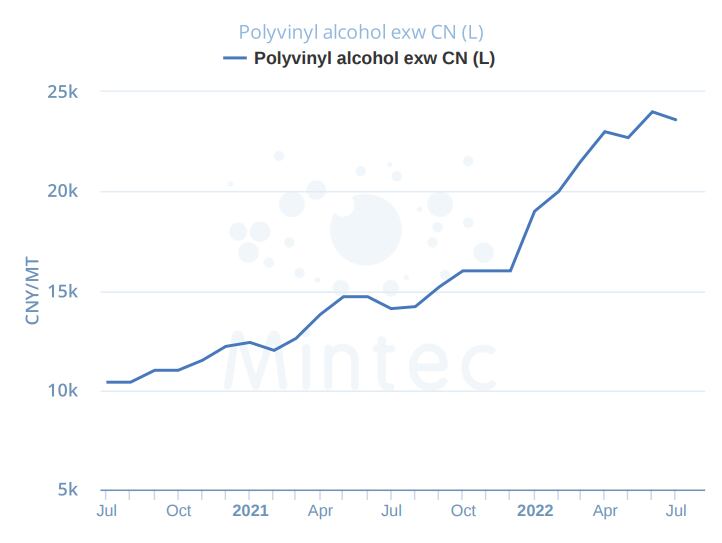
After reaching a record high price of CNY 24,000/MT in June 2022, the monthly average price of polyvinyl alcohol (PVA) from China, fell by 1.7% m-o-m but remained up by 67.4% y-o-y at CNY 23,600/MT in July. PVA prices have soared compared to the same period last year due to rising demand from various sectors as awareness regarding its environmental impacts as a sustainable polymer has grown.


